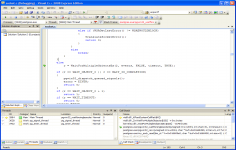 PostgreSQL 9.0.3
PostgreSQL 9.0.3
PostgreSQL Global Development Group - (Freeware)
PostgreSQL is a good choice when it comes to object-relational database management system, being one of the strongest competitors for Microsoft SQL Server, Firebird, Oracle, Sybase.
PostgreSQL for Windows is a software for managing relational database and Ordbms objects that will run on your operating system. It is recognized worldwide for its stability and its programming possibilities particularly extensive in the engine of your database using the PL / pgSQL.
PostgreSQL is the main competitor for MySQL, Firebird, Oracle, Sybase or Microsoft SQL Server and it is fully ACID compliant and has support for foreign keys, joins, views, triggers, and stored procedures. It also includes the windowing functions, common table expressions and recursive joins a parallel restore, consolidated hash indexes, support for SSL certificates for user authentication, routines statistics function, etc.It allows to manage tables, libraries for many languages to access records from programs written in Java (JDBC), C + + / C, Perl or Tcl / Tk.ODBC API allows any application that supports this type of interface to access PostgreSQL databases.
PostgreSQL is highly customizable running stored procedures in more than a dozen programming languages, including Java, Perl, Python, Ruby, Tcl, C/C++,and its own PL/pgSQL, which is similar to Oracle's PL/SQL.
- Title:
- PostgreSQL 9.0.3
- File Size:
- 47.1 MB
- Requirements:
- Windows (All Versions)
- Language:
- en-us
- License:
- Freeware
- Date Added:
- 23 Mar 2011
- Publisher:
- PostgreSQL Global Development Group
- Homepage:
- http://www.postgresql.org
- MD5 Checksum:
- 83AFA54FCB1311D38D5743E4127A2C95
* Before exiting walreceiver, ensure all the received WAL is fsync'd to disk
Otherwise the standby server could replay some un-synced WAL, conceivably leading to data corruption if the system crashes just at that point.
* Avoid excess fsync activity in walreceiver
* Make ALTER TABLE revalidate uniqueness and exclusion constraints when needed
This was broken in 9.0 by a change that was intended to suppress revalidation during VACUUM FULL and CLUSTER, but unintentionally affected ALTER TABLE as well.
* Fix EvalPlanQual for UPDATE of an inheritance tree in which the tables are not all alike
Any variation in the table row types (including dropped columns present in only some child tables) would confuse the EvalPlanQual code, leading to misbehavior or even crashes. Since EvalPlanQual is only executed during concurrent updates to the same row, the problem was only seen intermittently.
* Avoid failures when EXPLAIN tries to display a simple-form CASE expression
If the CASE's test expression was a constant, the planner could simplify the CASE into a form that confused the expression-display code, resulting in "unexpected CASE WHEN clause" errors.
* Fix assignment to an array slice that is before the existing range of subscripts
If there was a gap between the newly added subscripts and the first pre-existing subscript, the code miscalculated how many entries needed to be copied from the old array's null bitmap, potentially leading to data corruption or crash.
* Avoid unexpected conversion overflow in planner for very distant date values
The date type supports a wider range of dates than can be represented by the timestamp types, but the planner assumed it could always convert a date to timestamp with impunity.
* Fix PL/Python crash when an array contains null entries
* Remove ecpg's fixed length limit for constants defining an array dimension
* Fix erroneous parsing of tsquery values containing ... & !(subexpression) | ...
Queries containing this combination of operators were not executed correctly. The same error existed in contrib/intarray's query_int type and contrib/ltree's ltxtquery type.
* Fix buffer overrun in contrib/intarray's input function for the query_int type (Apple)
This bug is a security risk since the function's return address could be overwritten. Thanks to Apple Inc's security team for reporting this issue and supplying the fix.
* Fix bug in contrib/seg's GiST picksplit algorithm
Related software
2.1/5 from 182 users

